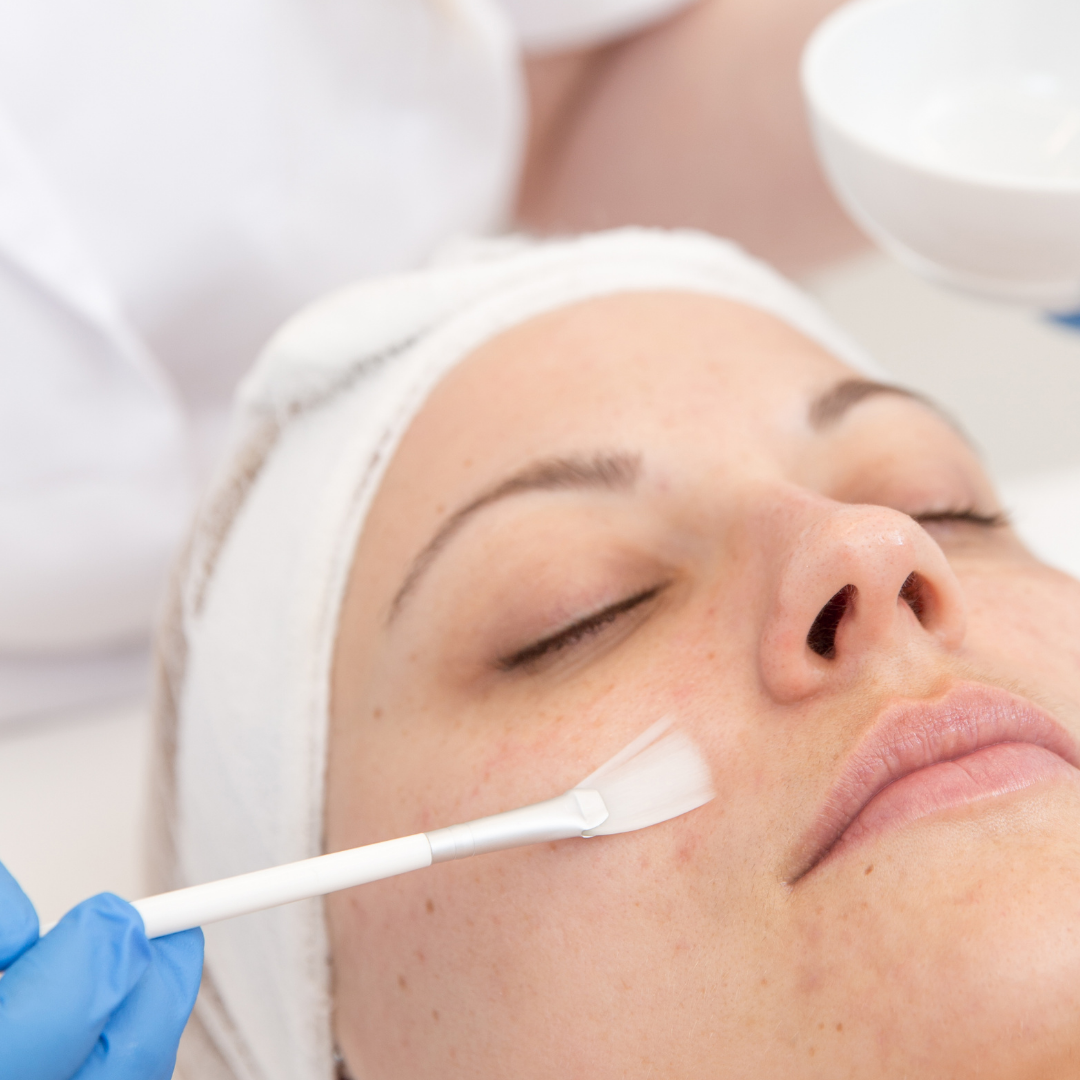
Professional exfoliation and Vitamin C
Share
Your skin naturally sheds dead skin cells to make room for new cells every 30 days or so. Sometimes, dead cells don’t shed completely. This can result in dry, flaky patches and clogged pores. Exfoliating can help prevent this.

Although exfoliation at home is effective, nothing beats professional exfoliation done by an esthetician with professional-only actives and tools. Here are popular and effective professional exfoliation treatments:
- Chemical peels.
Professional chemical peels are usually made of acids that break down the “glue” that holds your dead skin cells together. Popular acids are lactic acid, glycolic acid, salicylic acid, azelaic acid… Each acid works differently on skin. For instance, some acids are more suited for oily or congested skin, while others are more effective on hyperpigmentation. Estheticians have the expertise to tailor how to select or blend acids to your exact skin needs.
- Dermaplaning.
This is a physical form of exfoliation where dead skin cells and peach fuzz (facial hair) is removed with a scalpel blade. This is a quick and effective way for deep exfoliation. On sun damaged skin, results are particularly spectacular.
- Microdermabrasion.
This machine treatment uses an applicator with an abrasive surface (usually fine crystals) that gently sands away the thick outer layer of the skin, and a vacuum removes dead skin cells.
In all forms of professional exfoliations, parts of the outer layer of the skin (stratum corneum) is removed. This opens a “door of opportunity” for actives to penetrate skin more effectively, and deliver their benefits.
This is where the application of Vitamin C becomes interesting. Vitamin C in its pure form (ascorbic acid) is able to act at a deeper level and help boost visible results.

Research shows that Vitamin C (ascorbic acid) supports skin’s fibroblasts in the production of collagen, responsible for skin’s elasticity and firmness. Fibroblasts are located between 0.1mm and 0.5mm deep into skin. By removing a layer of dead skin through exfoliation, we are allowing Vitamin C to get closer to fibroblasts, and therefore maximizing the ability to produce precious collagen.
This is not all.
At around 0.1mm deep into skin, this is where we find melanocytes, cells responsible for the production of melanin (pigment). When under stress (UV exposure, pollution exposure, or hormonal stress), melanocytes produce melanin unevenly and this is where most hyperpigmentation issues originate: sun spots, age spots, melasma, post-inflammatory inflammation… Vitamin C (ascorbic acid) is also proven to act on melanocytes and helps regulate melanin production.
So, you have it:
- Professional exfoliation is key: Book a treatment with your local esthetician every 4-6 weeks.
- Use a Vitamin C serum with ascorbic acid, the only form of vitamin C that is proven to work.
- Use a fatty acid rich moisturizer, which will support your skin’s barrier after professional exfoliation.
Results on skin texture and pigmentation should be visible quickly.
The Tingly Powder Serum and Nourishing Face Oil are effective everyday products. Their potency is however boosted when used after a professional exfoliation such as chemical peel, dermaplaning, microdermabrasion or other.

